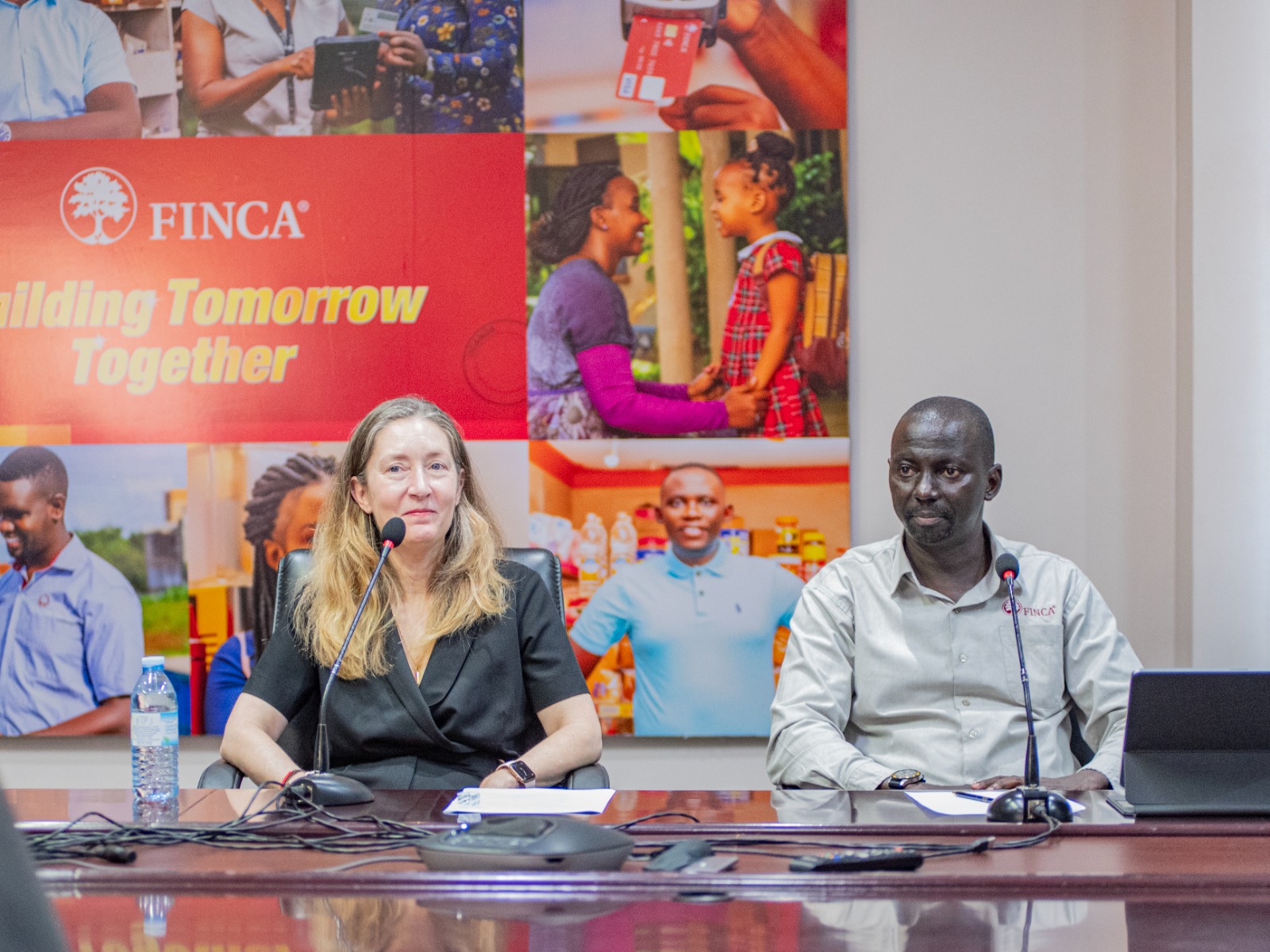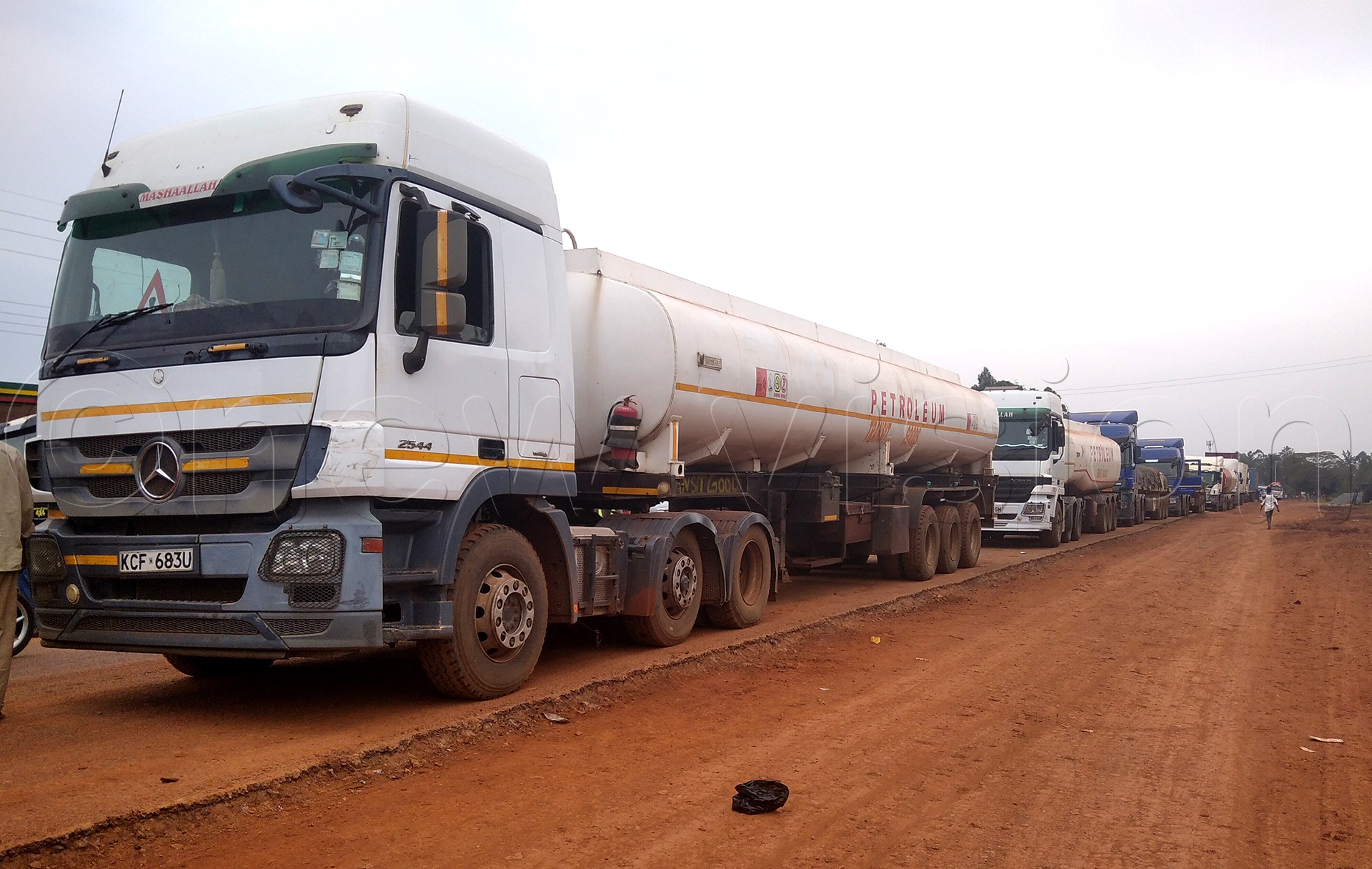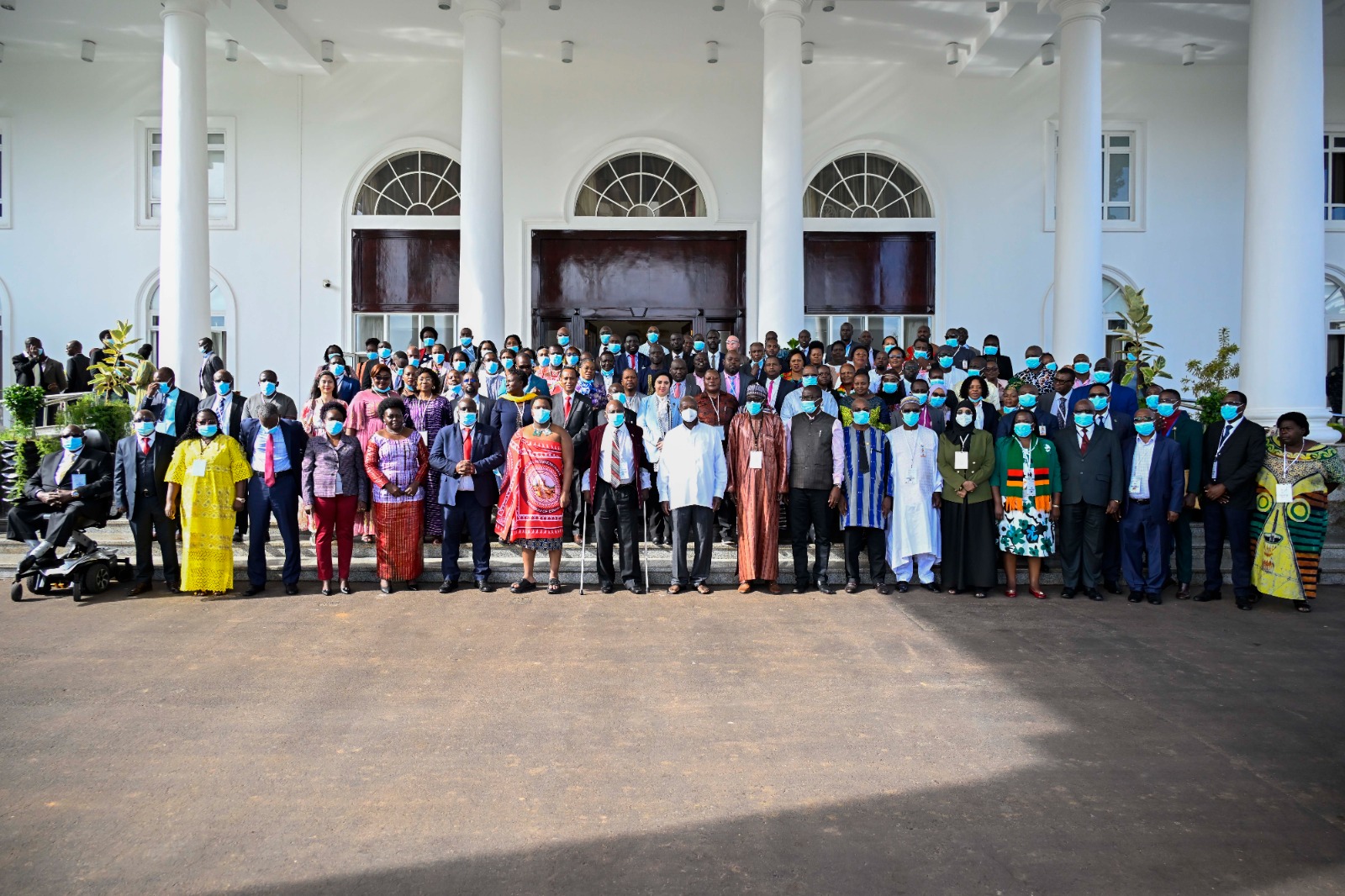Gov’t to connect 90% of Ugandan households to internet in new digital transformation roadmap
Government has revealed that at least 90% of Ugandan households will by the year 2040 be connected to internet as part of its digital transformation agenda.
The roadmap launched on Thursday will also see 95% of government services move online, 90% of Uganda covered by broadband, 90% of citizens accessing services online and 90% of SMEs and other private institutions connected to internet whereas 60% of the country will be utilizing local ICT products and services by government and private sector.
Keep Reading
- > Police adjust recruitment program for probation constables in 20 districts over census
- > Case against men accused of illegal entry into Balaalo farm in Gulu dismissed
- > Northern corridor partner states okay joint mobilization of funds to fast-track SGR project
- > FINCA intensifies efforts to improve lives in Uganda
As part of the roadmap, government will expand the National Backbone Infrastructure (NBI) to reach a minimum additional 73 districts and 20 major towns with last mile connectivity to service at least 3,000 administration units including schools, ministries, departments, agencies, local governments and hospitals with appropriate international bandwidth capacity.
To this, extending fibre access will be necessary because high band- width applications, especially video, require fibre back- haul to operate effectively. This will further provide a reliable digital rail for roll out of enterprise e-services and enhance connectivity and security for large footprint agencies that are increasingly getting digital such as the Electoral Commission and NIRA.
The roadmap will also see government create 800 free wireless internet hot-spots with inclusion for rural and underserved areas.
Speaking during the launch of the first ever digital transformation roadmap for Uganda, the Ministry of ICT Permanent Secretary, Dr. Aminah Zawedde said the roadmap will show priorities that government will focus on to achieve its agenda.
“For us to transform digitally we must have internet connectivity and we shall prioritize building of the internet working together with the private sector. We shall also improve government and private sector operations through digitization. Because we recognize the undeniable importance of universal and affordable access which is why with strengthened infrastructure and wider connectivity, we aim to bridge the urban-rural divide, and thereby ensuring that every citizen, regardless of location, is plugged into the global information superhighway,” Dr. Zawedde said.
According to the Ministry of ICT Permanent Secretary, government will accelerate efforts to efficiency and transparency in every sector through provision of digital services to revolutionalise the way it interacts with and serves the public.
Digital literacy
According to the State Minister for Higher Education, John Chrysostom Muyingo, government will as part of this digital transformation roadmap embark on ensuring digital literacy for all Ugandans.
“The roadmap will help shape the future of education and skills development of our country with particular focus on nurturing digital skills which represents fundamental shifts in preparing youths for opportunities of 21st century where technology is evolving,” Muyingo said.
“Digital skills are the currency of the modern world and building blocks to enable people thrive and as we embark on this journey, we acknowledge digital literacy and coding are no longer optional but essential for personal and career growth. This will help create a generation of digital competent citizens.”
The ICT Minister, Dr. Chris Baryomunsi said with the digital transformation roadmap, government will be using the revolution of technology to spur development and cause transformation and improve lives of Ugandans
“Its through digitization that we will make rural areas and all parts of the country relevant and alive to the digitization agenda of the world. Integrating ICT will become part and parcel of what we do to have a society where ICT plays a crucial role in development,” Dr.Baryomunsi noted.
The Vice President, Maj Jessica Alupo said the roadmap will help the country confront the changes brought about by the advent of the digital age.
“The digital age is not merely upon us but a part of us. We therefore have to acknowledge that ICT is more than a sector but a catalyst to infiltrate all sectors of our lives. Everyone should know that ICT and innovation are not mere fancy words but import to spur creation of jobs. Therefore, our roadmap not only addresses the most recently technological advance but also the issue of youth employment. We intend to create new opportunities, encourage entrepreneurship and provide youths with jobs and opportunities they deserve,” Alupo said.
The UNDP country representative, Elsie Attafuah said the roadmap has come at the right time as the digital future is arriving faster than expected.
“The latest advances in artificial intelligence and related innovations are expanding the frontiers of the digital transformation of socio-economic systems. Digital transformation can help accelerate progress toward every single one of the 17 Sustainable Development Goals (SDGs). For example, by providing the means to deliver affordable and high-quality goods and services in healthcare, education, finance, commerce, governance, agriculture and other vital areas, digital transformation can help countries to reduce poverty and hunger, boost health, create new jobs, help mitigate climate change, provide early warning for disasters, improve energy efficiency, and make cities and communities more sustainable,” Attafuah said.
“Let me say that this digital transformation roadmap is a strategic investment opportunity. We must embark on preparing bankable projects to unlock both public and private financing for the digital revolution. We have opportunities for major public and private investments in skilling, in big data utilization, in e-service centres for the last mile, in tech hubs and innovation labs, and in scaling up of promising tech startups.”
She however warned that whereas digital technology can bring tremendous opportunities to accelerate progress on the sustainable development goals, it can also widen socioeconomic gaps for those who lack internet connectivity, affordable devices, or the skills to benefit from the digital economy.
“ Equally, vulnerable people and groups who don’t have training in digital skills can be more susceptible to cyber-security risks such as fraud and identify theft. Digital technologies are not inherently inclusive and require us to thoughtfully design and apply them in a way that leaves no one behind.”
According to Jan Sadek, the Head of the European Union Delegation to Uganda, the digital transformation roadmap for Uganda will play a crucial role in the development of the country.
He noted that the roadmap is well aligned with the European Union investment strategy for Africa that seeks to bring together resources to support key areas in the countries
“We reaffirm our commitment to supporting Uganda to transform its digital space to interact with each other and the rest of the world,” Sadek said.


















